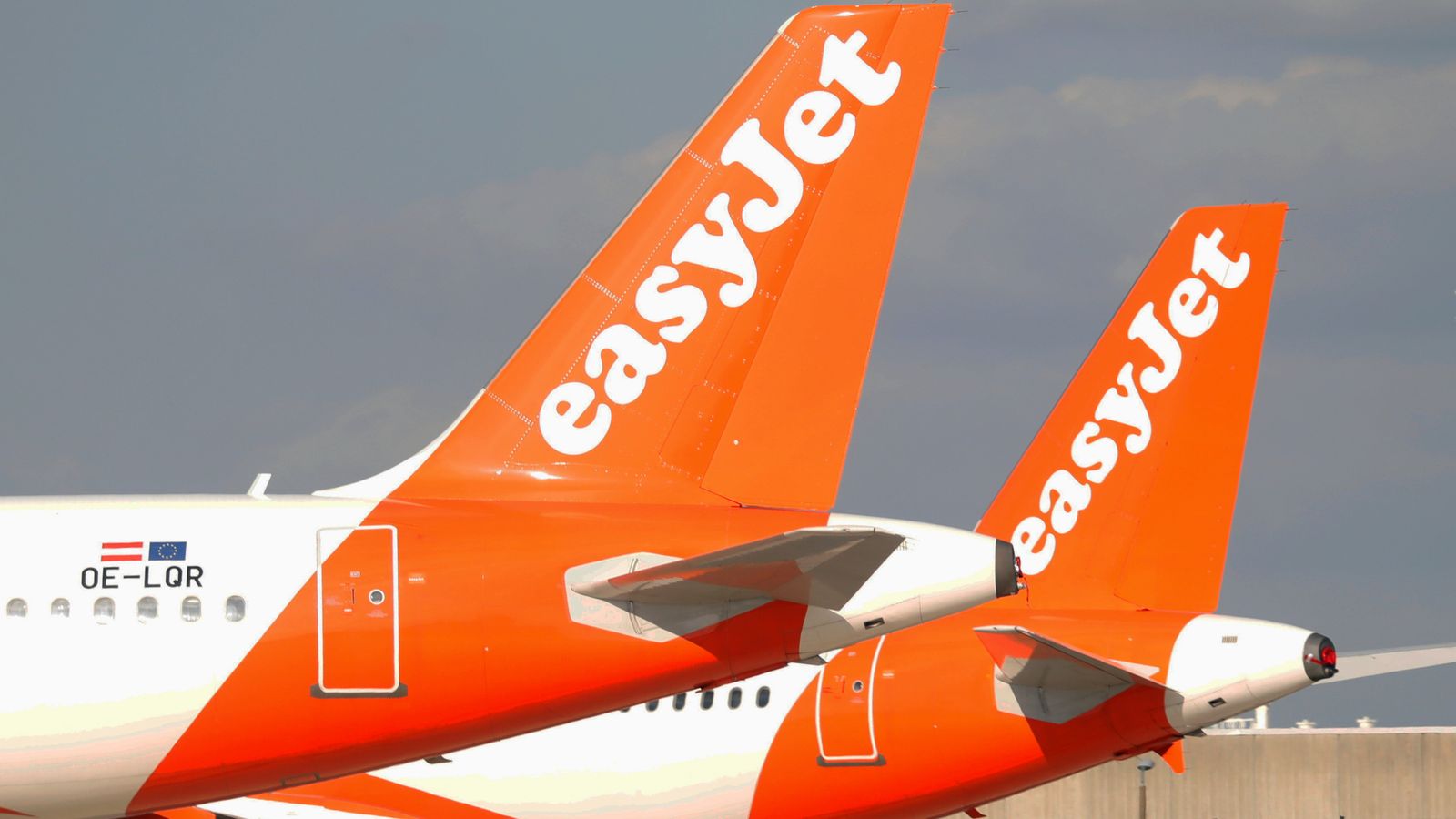EasyJet has warned the government that it may need further financial support from the state as it braces itself for a brutal winter that will trigger hundreds of millions of pounds in losses.
Sky News has learnt that the low-cost airline has signalled during recent interactions with Whitehall that its balance sheet could require a state loan or other form of financing if the coronavirus pandemic continues to decimate its schedule during the coming months.
Further details of any request it had made to the government were unclear on Wednesday, although an insider said easyJet was not in need of an “emergency loan”.
An industry source said that the company, which has already accessed £600m through the Bank of England’s Coronavirus Corporate Financing Facility, was taking “a prudent approach” to the management of its balance sheet after reporting a £325m third-quarter pre-tax loss.
EasyJet is scheduled to publish a pre-close trading update on Thursday morning.
The Luton-based carrier said in May that it would need to cut up to 30% of its workforce, since when a UK consultation process has led to 1,300 voluntary redundancies.
Last month, it said it was reducing its schedule during the final quarter of the year by a greater margin than originally anticipated because of weak consumer confidence, the absence of an airport testing regime in the UK and pandemic-related measures in force across Europe.
EasyJet has consistently called, along with other airlines, for government assistance in the form of air passenger duty relief and the implementation of a testing regime at airports – with the first step towards one finally announced by ministers on Wednesday.
However, the signal to the government that it may seek further taxpayer support reinforces the precarious state of the finances of many companies that were regarded as robust prior to the pandemic.
Since the outbreak, easyJet has raised £400m from shareholders through a placing, and hundreds of millions of pounds more by selling and leasing back part of its fleet.
Last month, the airline disputed an account given by union officials of a meeting with its finance chief in which they said he gave them the impression that easyJet was “hanging by a thread”.
The company has fought a running battle this year with its founder, Sir Stelios Haji-Ioannou, who has demanded the cancellation of a major Airbus order and threatened to seek the removal of most of its board.
:: Subscribe to the Daily podcast on Apple Podcasts, Google Podcasts, Spotify, Spreaker
Sir Stelios, who launched easyJet in 1995 and floated it on the London Stock Exchange five years later, said earlier in the year that the company would be insolvent by August unless it cancelled the order.
In practice, although he lost a shareholder vote in May aimed at removing easyJet’s chairman, John Barton, and Johan Lundgren, the chief executive, many of the directors have since decided to leave anyway.
Sir Stelios did not participate in the summer share placing, meaning that the stake held by him and his family was diluted to below 30%.
He also sold a number of shares this year for the first time since 2015.
In a statement on Wednesday evening, an easyJet spokeswoman said: “easyJet continues to review its liquidity position on a regular basis and will continue to assess further funding opportunities, should the need arise.”
